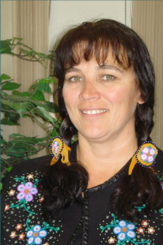Welcome to my final project for ETEC 521- Indigeneity, Technology and Education
In this final project I hope to synthesize much of the learning that I have acquired during this course with the focus being on Traditional Knowledge (TK). I endeavour to look at the definition of TK, the importance of TK, why TK has been marginalized in the past, why it may be gaining greater acceptance, the benefits the Western educational system can gain from it, and strategies classroom teachers can employ to integrate it into their classrooms.
Changing perception of traditional knowledge and indigenous values (respect for land, the natural world, traditions, elders, and community protocols) by viewing them through a different lens, will afford mainstream western society the chance to precipitate a shift in the Western education paradigm to one that is more holistic, experiential and sustainable.
What is Traditional Knowledge?
My definition of Traditional Knowledge- geographically specific knowledge that has been passed down from one generation to the next, enabling the next generation to survive by efficiently using precious resources, and thrive culturally by transferring traditions, rituals and moral values.
My understanding of Traditional Knowledge prior to ETEC 521 may have been superficially accurate, but by further delving into the topic, it has become clear to me that this is not a straightforward subject. It is has been contentiously debated, examined, marginalized and in many cases reluctantly accepted as relevant in today’s Western society.
Traditional Knowledge- as defined by the Director General of United Nations Educational, Scientific and Cultural Organization (Mayor, 1994) defines traditional knowledge:
The indigenous people of the world possess an immense knowledge of their environments, based on centuries of living close to nature. Living in and from the richness and variety of complex ecosystems, they have an understanding of the properties of plants and animals, the functioning of ecosystems and the techniques for using and managing them that is particular and often detailed. In rural communities in developing countries, locally occurring species are relied on for many – sometimes all – foods, medicines, fuel, building materials and other products. Equally, people’s knowledge and perceptions of the environment, and their relationships with it, are often important elements of cultural identity.
Alaska Native Science Commission. (1994). What is Traditional Knowledge? Retrieved Nov. 12, 2012 from: http://www.nativescience.org/html/traditional_knowledge.html
Despite the fact that the majority of my examination of this topic has focused on Traditional Knowledge of North American First Nations people, it is a global matter that is present in all corners of the world where historical, and placed-based information, is passed from one generation to the next.
Interview with Melanie Bennett
As a descendent of the dominant Western culture, complicit in the subjugation and erosion of Traditional Knowledge amongst First Nations people, I began to look at this topic from the only perspective I could; one of humility and openness, and with a willingness to learn and adapt. I looked to Melanie Bennett; a friend, mentor and accomplished local First Nation educational leader for her wisdom and guidance. Melanie was gracious with her time and allowed me to video and audio record her thoughts on Traditional Knowledge and education.
Please choose to either listen to the audio only podcast, or watch the video interview that is broken into two segments.
 Audio Podcast-Interview with Melanie Bennett (6.2 Mb) Audio Podcast-Interview with Melanie Bennett (6.2 Mb) |
Traditional Knowledge Video Interview- Part 1 |
Traditional Knowledge Video Interview- Part 2 |
